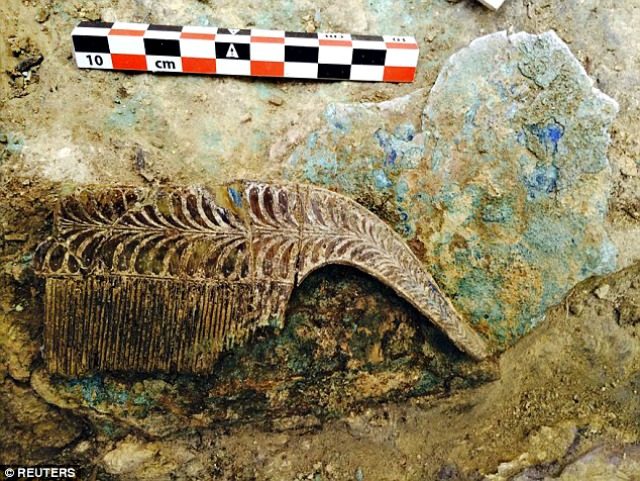Smithsonian magazine turned a story on the recent discovery of the grave of an ancient Mycenaean soldier that lay undisturbed since 1600 BC into a “warning” about the “rising nationalism and xenophobia” in the United States of America — a country not founded for thousands of years after the soldier died.
This wild political shift is made in a story in the January edition of Smithsonian entitled, “This 3,500-Year-Old Greek Tomb Upended What We Thought We Knew About the Roots of Western Civilization.”
The article describes the discovery of the soldier’s grave — a find that, due to the amazing trove of artifacts within, is being hailed as one that might rewrite the known history of the clash of cultures between the Mycenaeans and the Minoans. But as the article comes to a close, Smithsonian writer Jo Marchant shows she may be as interested in modern day politics as the ancient world.
Marchant claims that the discovery of the ancient warrior’s tomb is “compelling” for those interested in the history of “great” civilizations. But in her penultimate paragraph, she shoehorns in an attack on Donald Trump and the modern political right that is currently rising in the U.S. and Europe.
The writer and the husband-and-wife archaeologists from the University of Cincinnati heading up the project, Jack Davis and Sharon Stocker, lapse into an attack on people with whom they disagree concerning today’s politics:
The revelation is compelling for anyone with an interest in how great civilizations are born — and what makes them “great.” And with rising nationalism and xenophobia in parts of Europe and the United States, Davis and others suggest that the grave contains a more urgent lesson. Greek culture, Davis says, “is not something that has been genetically transmitted from generation to generation since the dawn of time.” From the very earliest moments of Western civilization, he says, Mycenaeans “were capable of embracing many different traditions.”
Thus the author suggests that the history of the Mycenaeans is somehow proof that the U.S. and European right are “xenophobic” racists who would destroy culture, not create it. The last paragraph of the article makes this explicit:
“I think we should all care about that,” says Shelmerdine. “It resonates today, when you have factions that want to throw everybody out [of their countries]. I don’t think the Mycenaeans would have gotten anywhere if they hadn’t been able to reach beyond their shores.”
The writer and archaeologists’ conclusions are made based on a discussion of an era in which great civilizations were constantly at war with one another in order to both protect themselves from total societal destruction and to visit it upon someone else.
Follow Warner Todd Huston on Twitter @warnerthuston or email the author at igcolonel@hotmail.com.s

COMMENTS
Please let us know if you're having issues with commenting.